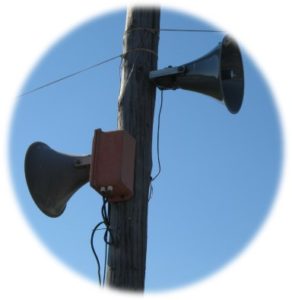Which personality type makes the best leader, extroverts or introverts? For perhaps the past century there has been a bias toward extroverts, although this is much different than the prior historical view. Wharton professor, Adam Grant, conducted research that found 96% of leaders self-identify as extroverts. Of course, part of the explanation of this high number could be the cultural bias that extroversion is more preferable than introversion. In fact, there are reasons why introverts make great leaders and there are reasons why extroverts might be the better leaders. But rather than a preference for a certain personality type, it seems that the best explanation for leadership capability is character.

People often think of introverts as quiet and extroverts as gregarious or outgoing, but this is an oversimplification. Introverts focus inward, into their own thoughts, and extroverts focus outward, into the world. The difference is sensitivity to stimulation. An introvert is prone to being overstimulated by intense or prolonged social interaction. Extroverts crave stimulating activities like social interaction, social gatherings, and even activities that provide stimulus such as amusement parks or mountain climbing. Another simple way to describe the difference is extroverts gain energy from social interaction while introverts use energy.
At one time it was thought that people were one or the other – extrovert or introvert. It seems more logical that everyone has some of both, with one being more predominant. Also, the predominance of either extroversion or introversion can vary in different settings or circumstances. And people can train themselves to be more of what they deem desirable. Since extroversion is more socially acceptable, at least in the western world, there are many people that would naturally be introverts but have developed the habits of an extrovert, except that they may find it more tiring than a true extrovert would.
The strength that the extrovert personality type brings in leadership is perhaps boldness or persuasiveness. An extrovert is especially effective when leading a group of passive followers, providing energy and direction. The downfall of an extrovert in leadership can be failing to listen and allow team members to express their own thoughts and feelings, resulting in dissatisfaction of those that want to be heard.
The strength that the introvert personality brings to leadership is the ability to think deeply and seek out the input of those around them. An introvert is especially effective when leading a team of highly capable and motivated people where the group’s input and interaction are crucial. The downfall of an introvert could be some degree of isolation or the inability to energize certain followers.
While they differ in how they seek and react to stimuli, both extroverts and introverts are capable of building the character of an effective leader. And it is character more than personality type that determines the effectiveness of a leader. Character traits such as honesty, integrity, authenticity, and humility are not a function of personality type. Both extroverts and introverts can be strong in their respect and appreciation of other people and the thoughts and feelings of others. Extroverts may need to restrain their voice to hear others and introverts may need to become more intentional about seeking out interaction with others. But the personality type of extroversion – introversion does not define a leader.
The lesson for organizations is to not be caught up in what shows on the surface, which is where introversion and extroversion reside. Rather, organizations should make decisions on hiring and promotion based on underlying character traits, the more important definition of leadership ability.
For an interesting discussion of the societal shift toward extroversion, see the TED talk by Susan Cain, author of Quiet: The Power of Introverts in a World That Can’t Stop Talking.
Where are you on the introversion / extroversion scales? What do you see as the advantages or disadvantages of these two personality types?

Add your comment